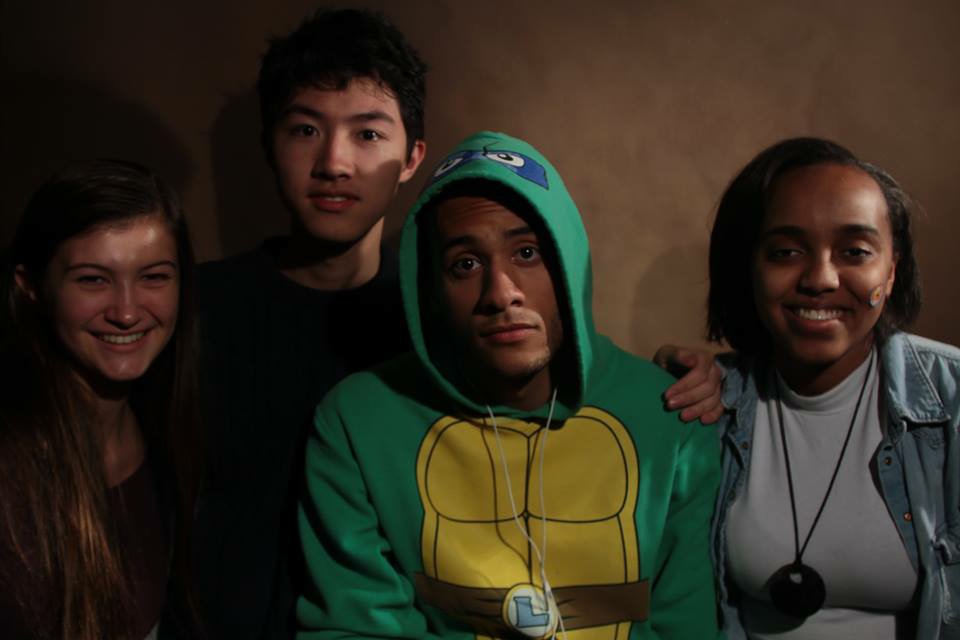Orlando Pinder is a Maryland-based high school student and the filmmaker behind the short documentary, I, Too, Am B-CC. The video features students of color from Bethesda-Chevy Chase High School, just outside Washington, D.C., and follows in the footsteps of the I, Too, Am Harvard project, which interviews black students in predominantly white schools. I recently got to talk with Orlando about his experience making the film and what he thinks about the future.
Bani Amor: What made you want to make your doc, I, Too, Am B-CC?
Orlando Pinder: My collaborators, Mades and Abby, approached me with an idea to create a piece that dealt with some of the inequities in public education. I had seen I, Too, Am Harvard and was inspired by that model. I thought it was great because it showed the perspective of students that were wrapped up in tricky social situations. I thought it would be a good opportunity to highlight contemporary issues of racism. Things work on a more institutionalized level and a lot of students and teachers are not aware that there is a problem, nor do they realize that they are contributing to it. I’m a filmmaker that wants to use the medium of film to tackle social injustices.
Bani: Were you surprised at all with how the students were responding in their interviews?
Orlando: No, not really. I am familiar with this problem and am affected by the same issues on a daily basis. What did surprise me was the extent of the pain from some students. For instance, Sisandorsu’s testimony was particularly moving. I’ve been going to school with her for four years and I never truly understood who she was until I filmed that segment. I don’t think anyone expected students to be so open to it, but it goes to show how ready people are for change.
I’m a filmmaker that wants to use the medium of film to tackle social injustices.
Bani: Yes, that part was particularly moving. Sometimes people, even people of color, don’t want to talk about race, but docs like yours show just how prevalent these issues are in the community and how ready people are for a dialogue on it.
Orlando: Absolutely.
Bani: Some of the students talked about feeling ostracized for their skin color, being the only black student in the class, feeling unwelcome in the school or labeled as “affirmative action” kids. What do you think are the most challenging issues black students face at B-CC?
Orlando: I can only speak for myself.I would love to go through a day without having people say insensitive things. Regularly I hear people mocking urban vernacular in a way that is meant to be offensive to blacks. This happens often. It’s tough to correct people because it’s so subtle. On top of that I always overhear things like, “She’s pretty for a black girl,” or, “He’s smart for a black guy.” Things like that suggests that there is a lower standard for people of color, you know?
Bani: Microaggressions. For sure. Do you see things getting better or worse?
Orlando: I couldn’t tell you for sure. The video has helped though. It has allowed for a conversation. We went to fifty classes at B-CC and led seminars about race and stereotypes. We were able to have open discussions in the classrooms. We were able to break down barriers with some of the kids. There were a lot of tears and confusion about issues relating to these topics. A lot of the white kids confessed that they were not aware that this was an issue or that they contributed to the discomfort of people of color. If the video continues to keep the discussion going, it will have an impact, but if the conversation ends here then I don’t believe too much will change.
Bani: Here’s hoping. Any final thoughts?
Orlando: I think it’s hard to get outside of ourselves regarding these issues. It’s a difficult thing to deal with racism now. We need the involvement of all people. This can’t just be a “black” problem. Everyone has a part in helping us move forward with this. If we want an equitable society, we need contributions from all people.
